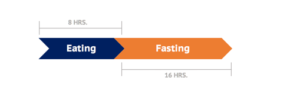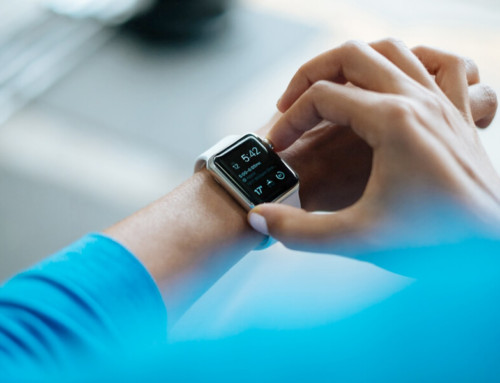The Paradox
Intermittent Fasting?
So you’ve finally put health and fitness at the top of your priority list. You’ve signed up for a gym membership, watch what you’ve been eating, and somehow gotten past the early stages and into a good routine.
What sucks is that your results are just not coming fast enough!
Losing weight can be a hard and tedious task. Some would even say daunting! For those of us beyond 40 and carrying a little belly fat, it can be darn near impossible. What we haven’t realized is that we are in the Twilight Zone of fat loss.
You see, belly fat, also known as Adipose fat, collects under the skin and around the internal organs. Adipose fat, once tapped can release stored toxins, but there is an even more sinister element lurking, especially for men – estrogen. Estrogen can significantly contribute to weight gain. Now there’s a paradox! Once we get into that fat burning zone, the release of estrogen can thwart our best efforts.
Fear not! There is a simple technique that can break the never-ending cycle of diet and weight gain and it’s called Intermittent Fasting.
What is Intermittent Fasting?
Intermittent Fasting is not a diet, but a scheduled eating plan that restricts your regular daily eating to a specific window of time. If you think about it, isn’t this how our ancestor ate. In our hunter-gatherer past, we existed in periods of feast followed by periods of famine.
When you eat, your body spends time and energy processing the food and converting it into energy for your cells. The body will use this new source of energy first. If any food remains after the digestive processes, the body will release it through the excretory system or store as fat in the event of famine. Remember, the body is primed for this event.
Intermittent Fasting allows the body to use this source of energy but also guides the body to burn stored fat as a source of energy during the fasting timeframe.
But what about that hormone paradox? We’ll get to that in a minute.
The benefits of Intermittent Fasting are numerous.
The list includes;
-
Boosting your metabolism and reducing weight gain
-
Increases insulin (a fat storing hormone) and leptin (a fat releasing hormone) sensitivity which helps decrease the risk of such nasties as diabetes, heart disease, and even cancer
-
Increases Ghrelin levels (your hunger hormone) to reduce overeating as well as promoting the production of Human Growth Hormone (HGH) which is an essential fat burning hormone
-
And helps prevent inflammation as well free radical damage
These benefits when combined with healthy sleeping habits and exercise such as High-Intensity Interval Training (HIIT), can be deployed to conquer the hormone paradox and get you on your way to becoming a fat burning machine.
How to Get Going with Intermittent Fasting
There are several Intermittent Fasting schedules you deploy or combine.
-
Fast for 48 consecutive hours once or twice per month
-
Fast for 24-36 hours once or twice per week
-
Alternate day 24 hours fasting
Regardless of the schedule you chose, you should build up your Intermittent Fasting schedule gradually. One method is to eat your first meal later and later into the day until your first meal is at lunch. The way I look at it, the first meal you BREAK your FAST is by definition breakfast. Be sure to have your last meal at least three hours before bedtime.
Intermittent Fasting should always be accompanied by;
-
Drinking lots of water with alkaline levels (coffee and tea are OK during fasting times; provide you use no sweeteners or milk)
-
Exercising according to how you feel (Yoga is excellent on fasting days that exceed 24 hours and for the 16/8 schedule plan your meals with your workouts)
-
Taking 5g-8g of a quality Branch Chain Amino Acid (BCAA) to avoid fuel your muscles while avoiding hunger and fatigue
Myself, I deploy a daily 16/8 Intermittent Fasting Schedule coupled with a once per month 48-hour nutritional cleanse.
For a comprehensive Intermittent Fasting Calculator and article, click here.

What You Eat Matters
What you eat during your feeding period is critical! You should focus on high-quality proteins, vegetables, and healthy fats. You should avoid starchy carbohydrates and never load up on fast food whether you are fasting or not. The best foods are single ingredient foods.
One Final Tip
You should always listen to your body, especially women who are extremely sensitive to the hormonal changes brought on by fasting. Intermitted Fasting is not for everyone.
If your medical condition makes fasting dangerous, you have a cold or other ailments for example, then focus on getting yourself back to health before implementing or continuing a fasting schedule. Women should move a little slower into the fasting schedule to avoid rapid change in ovulation.
I have found when fasting the signals my body sends are clear and concise.
Overall, Intermittent Fasting is a healthy and powerful tool you can deploy to take your fitness to the next level.
References:
http://ncbi.nlm.nih.gov/pubmed/3541569
http://www.ncbi.nlm.nih.gov/pubmed/17569758
http://www.ncbi.nlm.nih.gov/pubmed/23591120
http://ajcn.nutrition.org/content/86/1/7.full
http://www.eurekalert.org/pub_releases/2011-04/imc-sfr033111.php





